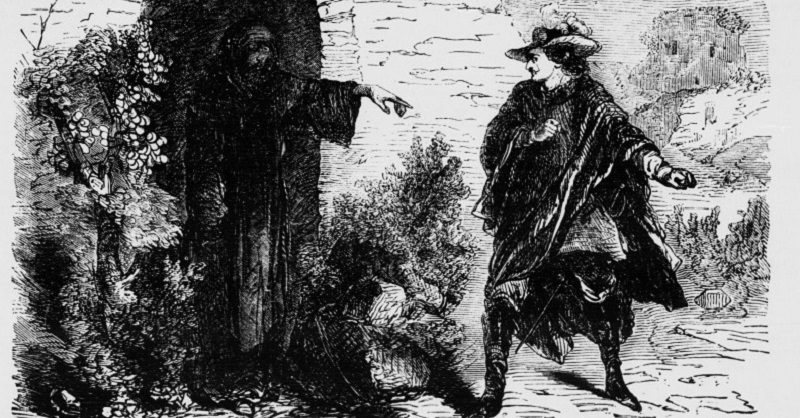-

Scientific romances: the Anglophone precursors of “Merveilleux-Scientifique” fiction
Isabelle Le PapeExtraordinary travels, stories of the future, utopias: there are numerous Anglophone stories such as those by Swift and Godwin which nourished an imaginary world linked to science.READ MORE -

Merveilleux-scientifique: a literary Atlantis
From 23rd April to 25th August 2019, the French national library (BnF) showcased a little-known school of literature called “merveilleux-scientifique”, in an exhibition that covers the period from the genesis of the genre to its height, between 1900 and 1930. Rediscovering these texts, book covers…READ MORE -

Mary Shelley and the myth of creation
Isabelle Le PapeMary Shelley was barely 18 when she wrote the novel Frankenstein or the modern Prometheus, which later inspired many authors of science-fiction. Daughter of a philosopher and a writer, and a tumultuous life as the spouse of the greatest English poet, Percy Bysshe Shelley, everything in her life…READ MORE -

An English Lady in Turkey : Lady Montague
Isabelle Le PapeLady Montague was the first female westerner to travel to Turkey. She left behind a set of correspondence which depicts a country very little known of Europeans at the time. Her letters, written during her travels to Europe, Asia and Africa were published in 1763 and inspired writers such as…READ MORE -

Ann Radcliffe’s Gothic horror
Isabelle Le PapePlaying with their readers' emotions, English literary women stage heroines and heroes in strange places: dungeons, cliffs, mysterious castles and austere moors. They did not lack imagination! This series presents these female authors, from the first gothic novels to the intense passions of the…READ MORE -

The feminine imagination in the novels of Fanny Burney
Isabelle Le PapeFanny Burney was amongst the first English women writers, and as such she not only contributed to the development of the novel towards the end of the 18th century but also to the invention of female figures entering into a hostile world, with a certain strength of character and sharing their…READ MORE -

George Eliot: writing about rural life
Isabelle Le PapeQuestioning the place of the individual in society during the industrial revolution, George Eliot painted the picture of rural communities and foreshadowed the naturalist novel, with its focus on underprivileged social classes and its fierce attachment to individual valuesREAD MORE -

Elizabeth Gaskell’s social engagement
Isabelle Le PapeAs the Victorian novel was in full swing, Elisabeth Gaskell depicted social panoramas which testified to her knowledge of both the industrial North and the rural South of England, paving the way for the demands of feminist movements and the Suffragettes.READ MORE -

Anne Brontë: the recluse of Haworth
Isabelle Le PapeNot as well-known as her sisters Emily Brontë, author of Wuthering Heights and Charlotte Brontë, famous for having published Jayne Eyre, Anne Brontë is a discreet female British literary figure who nevertheless inspired some of the first feminist struggles.READ MORE -

Emily Brontë in France
Isabelle Le PapeIntellectually nourished by an intense literary environment from a young age, Emily Brontë went down the path of literature as a career: from her first poems, created around the imaginary kingdom of Gondal, all the way to her only novel, Wuthering Heights (1847), which perplexed most critics, who…READ MORE -

Charlotte Brontë: a passion for writing
Isabelle Le PapeAfter the mysterious atmosphere of gothic novels and the sentimental novels of Jane Austen, let us discover the passionate world of Charlotte Brontë and her Sisters!READ MORE -

Aphra Behn : spy and writer
Isabelle Le PapeAphra Behn aka « Astrea », her spy pseudonym which she chose based on Honoré d’Urfé’s work L’Astrée (1607), isn’t very well known in France, despite numerous biographies having been published on the other side of the Channel. Raising the serious issues of slavery, individual freedoms or…READ MORE
Gallica is the digital library of the BnF and its partners. It offers free and open access to several million digitized documents from all periods and all media.
